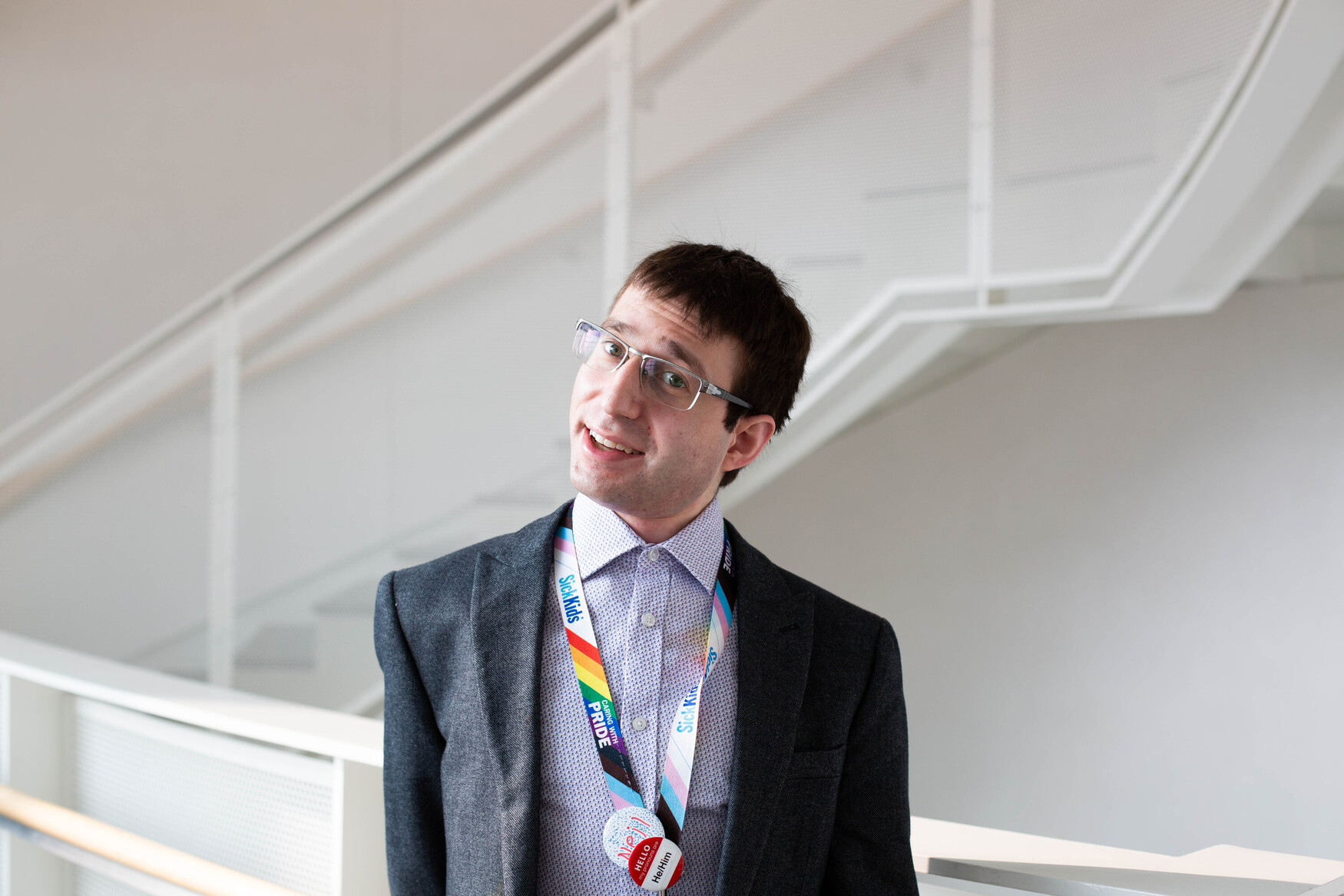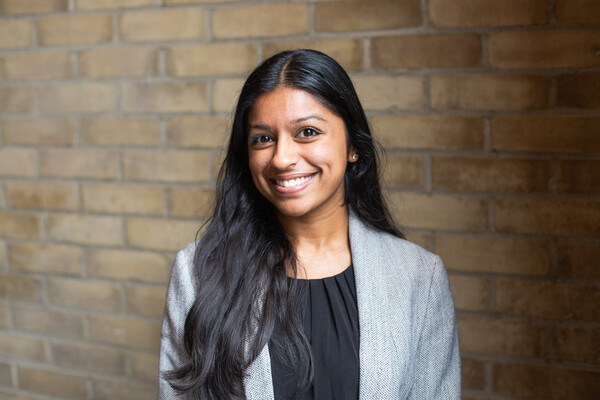
Neil Merovitch will graduate this spring with a PhD in physiology from the Temerty Faculty of Medicine at the University of Toronto. He studied the regulation of learning and memory under the supervision of Julie Lefebvre, an associate professor of molecular genetics at Temerty Medicine and a senior scientist at The Hospital for Sick Children.
Merovitch spoke with writer Julia Soudat about his experience as an advocate, doctoral student and living with a disability.
What got you interested in neuroscience?
My interest comes from living as a child with dystonia (a neurological movement disorder), chronic pain and secondary conditions. I started becoming interested in science during childhood. Being in and out of the hospital as a child really sparked my interest in studying the brain. I was always interested in how things worked and would take things apart and put them back together to figure it out. I see neuroscience the same way, just in terms of the brain. With neuroscience, you’re always on the frontier and don’t know what you will find. When I originally went into it, I was a bit naïve in thinking that I could one day help in understanding what was going on in my own brain. But given the complexity of the brain, that’s more daunting than I originally thought.
How has your experience with disability impacted your life as a student?
Throughout my life, I have undergone many complex procedures and operations, been hospitalized for extended periods and have had to navigate the difficult transition from paediatric to adult care. During this journey, I realized that my disability does not define who I am as a person. However, I am often left feeling as though others see me differently due to preconceptions which do not reflect my actual ability. I have learned how to advocate for myself, including tackling ableism, dispelling misconceptions about disabilities and accommodations.
These experiences have inspired me to give back and help others going through similar circumstances. I strive to promote the inclusion of others who have suffered through isolation and been made to feel inferior. To this end, I am a member of Temerty Medicine’s disability justice working group and the department of physiology’s EDI committee. Outside of the university, I am an EDI champion at SickKids, a member of the EDI and accessibility steering committees, and co-chair their access, accessibility and inclusion network. In addition, I serve on the Centre for Independent Living’s disability equity + access steering committee and am active in the Dystonia Medical Research Foundation and the Canadian Association of Physical Medicine and Rehabilitation’s anti-ableism special interest group.
In addition to volunteering with Child Life at SickKids, I am working on a mentorship program for children and youth with chronic conditions and disabilities. When I was growing up, I didn’t see myself represented in the fields of health care and research. I want to support others and show them the opportunities available, give back and have a positive impact on their futures.
My goal while at Temerty Medicine is to leave the Faculty in a better place than when I started.
Where should institutions focus, to improve the experience of people with disabilities?
We tend to think of hospitals and medical schools as places that would understand and support individuals who have chronic conditions or disabilities. We often assume that people “know better” when it comes to these things. But sadly, that’s often not the case. There are still a lot of barriers, including ableism. There are many preconceived notions about who or what a medical professional or researcher should be like and what they should be able to do, and many of these notions are upheld through hierarchical structures. There are pockets of people who are trying to make things better and are doing the work, but we have a long way to go. Mentors and resources like the Faculty’s Office of Inclusion and Diversity are very important.
Medicine and medical research isn’t that diverse right now, especially in terms of equity-seeking groups. With regards to chronic conditions and disability, in addition to trying to remove physical barriers, a big part of the work is trying to work on things like policy, resources and education to result in more acceptance and understanding. Trying to make environments accessible and barrier-free in more than just physical ways. And that very much depends on each institution and how committed leaders are to making tangible changes, the resources they’re willing to allocate to these objectives. One of the biggest barriers is the perceptions of people with chronic conditions and disabilities, and a lack of forward-thinking. The bottom line is that there’s a need for these professions to be as diverse as the populations they support or study. Asking questions and not accepting the status quo is essential to moving the needle forward.
What’s up next for you?
I’m currently looking for work, and am interested in the areas of patient engagement, accessibility and inclusion, and bringing my unique experiences and perspectives to the fields of health care and research. It’s not an easy process, and I’m still facing barriers, including ableism, while job-searching.
If you could give some advice to students pursuing a similar path, what would it be?
Get involved with work you’re passionate about, and be open to learning from and collaborating with people with diverse experiences and perspectives. Most importantly, don’t let obstacles get in the way of doing what you want to do, as there are always ways around them.

